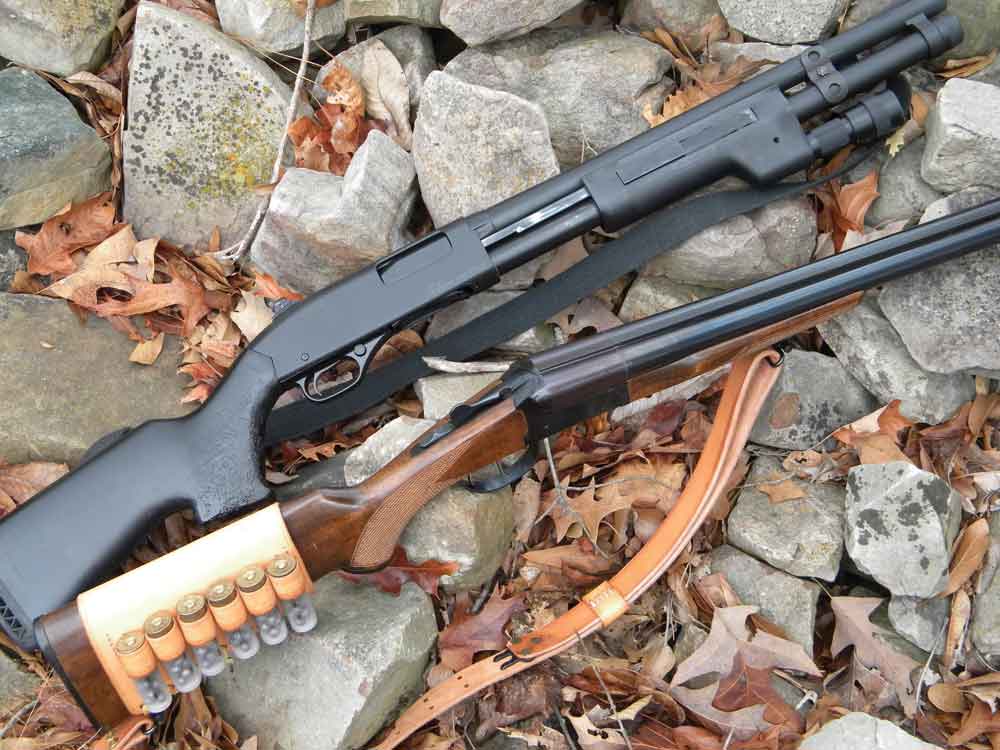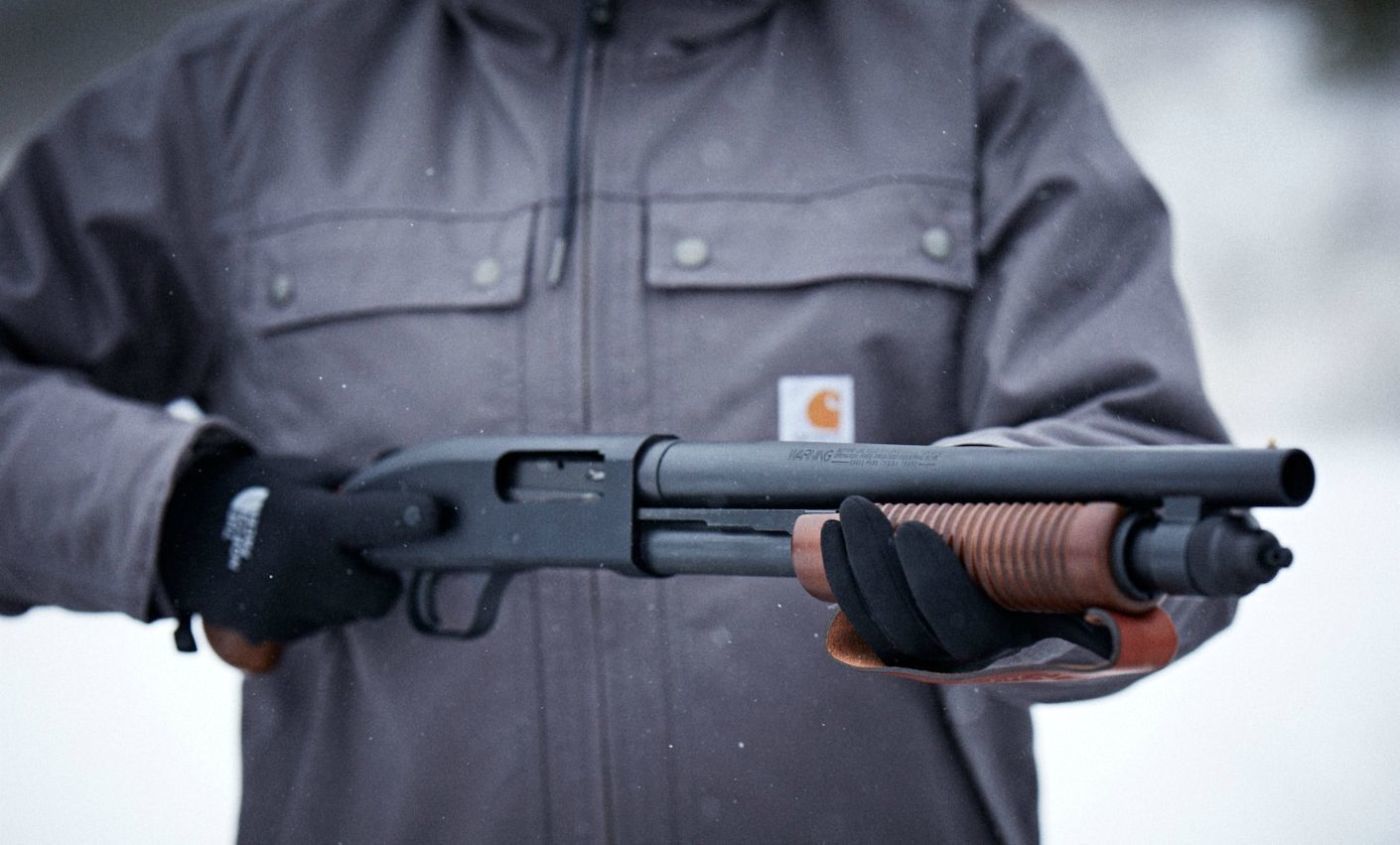All types of firearms are good for self-defense in certain situations and less than ideal in others. Shotguns in particular have a reputation for being the perfect home defense weapon, and they certainly are – but they’re not as sophisticated and easy to use as they’re sometimes portrayed to be.
In this article, we’ve outlined the main pros and cons of shotguns as home defense weapons and compared them to pistols and rifles used for the same purpose.
Guns Pros and Cons: Research in Extreme Purposes
Generally speaking, guns tend to be very good at certain things and pretty bad at others. Of course, with enough practice, you can mitigate or eliminate almost any disadvantage of a firearm – just know that it will take considerable time and effort to master the art of the tactical rifle. In contrast, pistols and rifles are generally easier to use for beginners and intermediate shooters, and the gap between their advantages and disadvantages is not as great.
Strengths of the gun
Shotguns have clear advantages over pistols and rifles in several ways:
Highest stopping power: 12-gauge and bullet impact; only the largest caliber pistols and rifles can match this on a shot-by-shot basis. A typical #00 charge fires nine pellets, each hitting the target with about the speed and power of a .32 caliber ACP pistol. Shooting multiple striking items dramatically increases your chances of hitting a vital area, and each item deals a separate wound. Very few criminals are left standing after one good shot from a 12 gauge shotgun loaded with defensive cartridges.
Shot Scatter: Shotguns in Hollywood movies produce patterns the size of a basketball from only a few meters away, sometimes even hitting multiple targets with one shot. It is true that shotgun pellets spread, and this can be a tactical advantage at short range, but the extent of spread is often greatly exaggerated. From a distance of five to thirty meters, you can expect a spread of about 2.5cm per meter with most 12-gauge cartridges. So, for fifteen meters, the distribution will be about 38 cm – approximately the width of the attacker’s torso.
Intimidation Factor: Any self-defense instructor or law enforcement officer will tell you that the most ideal solution is one in which an attacker is confined to your home with little or no resistance. Aside from the obvious concerns for defense counsel’s safety, the difference between a non-violent resolution and one where someone is injured or killed is often the difference between spending a few hours in a police station versus 18 months in the courts. Shotguns also have a certain intimidation factor. Some studies show that criminals are more likely to surrender or flee when they know their would-be victim has a gun.
Low Penetration: Compared to pistol and rifle cartridges, shotgun pellets tend to have less penetration. Although they travel faster than most rounds, they are spherical as opposed to conical, greatly reducing their ability to penetrate. However, reinforced bullets are more than capable of passing through the walls of your house and hitting innocent bystanders, so it is important to choose your self-defense cartridges wisely. In several studies, the #4 cartridge has been found to be powerful enough to stop most intruders with one shot, while being significantly less likely to penetrate a house wall than the cartridges.
Intermittent Reloads: With pistols and rifles, reloading creates a moment of defensive delay – however brief – when you only have one round in the chamber and are ready to fire. Some such firearms have a (perhaps unnecessary) safety mechanism that prevents the gun from being fired without a magazine inserted, leaving you defenseless when reloading. Conversely, the shotgun can be reloaded when you have a spare moment without leaving the weapon in a state of being unable to fire.
Weaknesses of the gun
Despite their excellent offensive capabilities, shotguns have some significant drawbacks:
- Difficult to Maneuver Indoors: By law, shotguns must have a significant minimum barrel length, making them much more difficult to maneuver nimbly in hallways or around corners. Regular training in home defense techniques with a long gun can alleviate this somewhat.
- Slow Multi-Target Attack: Most shotguns have manual reloads, which results in fairly large delays between shots. This can be a real problem if your home is invaded by multiple attackers. You can master the art of shooting a pump shotgun very quickly and accurately, but it takes a lot of practice. Alternatively, you may want to consider purchasing a semi-automatic shotgun.
- Slow Reloading and Low Ammo Capacity: Shotguns typically require handloading rounds one at a time. This means you are vulnerable for a few seconds while reloading. True gunsmiths can reload tube models with amazing speed – even loading two to four rounds at once – but this skill requires many hours of practice and constant reinforcement. Moreover, the large size of the 12-gauge shotgun cartridges limits the number of cartridges in the magazine – usually to a maximum of seven. All that being said, these disadvantages, while real, are often overstated. The sheer power of a single round from a 12-gauge shotgun is almost always enough to knock an attacker off his feet, while pistols and rifles often require multiple rounds to hit the target. Provided you are good at aiming (and pacing) your shots, it is very unlikely that you will need to reload your shotgun during a home defense situation.
Other reasons to choose in 12 gauge
There are other, less obvious benefits to leveling up your shotgun as well.
Most shotguns require more dexterity than pistols and rifles. Mastering the ability to quickly charge it, fire it, aim it with precision, and discharge it will make you much faster and can save your life. These types of speed and hand-eye coordination transfer well to other firearms and can be useful in a variety of other situations.
An excellent shotgun (for example: Turkish production) costs much less than any other weapon – sometimes a third cheaper than a branded one with a world name, and much cheaper than a rifled semi-automatic in an adult caliber. Ammunition also tends to be cheaper, especially for practical shooting. Ammunition is cheaper compared to many calibers for pistols and rifles, but in practice you’ll also typically shoot fewer rounds out of a shotgun than a pistol or rifle, reducing the overall cost as well.
Non-semi-automatic rifles are mechanically simple and have few moving parts, making them easier to clean and less prone to malfunction. Don’t forget to also read the basics of gun cleaning and maintenance.
A shotgun is an ideal weapon for home defense
Rather, they may have enough practice in this matter. Of course, the truly ideal home defense weapon is one that you can shoot quickly, accurately, and confidently, whether it’s a shotgun, pistol, or rifle.


